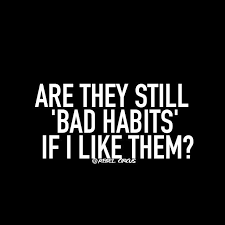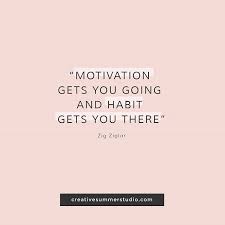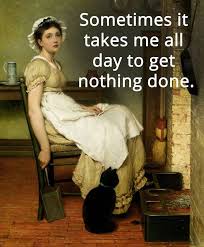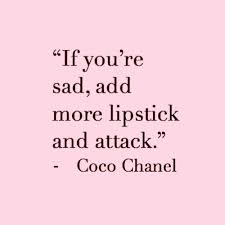What is You Are Unique?
My blog was inspired by a course called You Are Unique, which I wrote and presented some years ago. The course was about:
How long does a habit take to become established?
At the time of writing this course, it was believed that it took twenty-one days for a habit to become "ingrained". Now, it seems that it actually takes longer.
It does take three weeks to establish a new habit, so some effort is needed in these three weeks to get the new habit done.
Then it takes another nine weeks of repeating it, for it to really be a habit. So, rather than only three weeks, we are looking at twelve weeks, all up.
In the first three weeks, we may have to constantly remind ourselves, and make sure that we have made space for the habit in our life. We might have to prepare for the habit. For example, if you want to get up and go for a walk or run, you could get together your shoes and clothes each evening, where you can see them, so that they are a visual reminder.
I know, through experience, that I have to prepare things so that visually nothing else gets in my habit's way. For example, my trusty bottle of water, gets filled each night after dinner, then I just keep drinking it between dinner and sleep. Filling it again before bed so that if I get up during the night I can have another drink of water. And when I get up in the morning, that bottle is staring at me. It's at eye level. So I have another drink on my way to the bathroom.

I also know to put my computer away each night so that it doesn't seductively call out to me to waste time on it rather than meditating and walking. (likeable bad habit)

So, that first three weeks, some effort is needed, some "tricks" to remind us to do the habit. But then we can tend to wane, in the second lot of three weeks, and we may have to keep re-establishing the habit, but if we keep on going, the last six weeks are when something really does become a habit.
Our habits take up half of our life
When I first wrote You Are Unique, I felt strongly that good habits were like the backbone of our life. That if we had good habits established that fed us and our life, then it would be easier to have a better, more enjoyable life.
And yes, I still believe this. It seems that habits make up 50% of our lives. I'm quite sure that for many years, as a young mum, then a young working mum, then a "monk" (yes, a monk!), then back to the cycle of mum, working mum, etc, etc, I'm so sure that my life consisted of more than 50% of habits! And we also have:

Losing the power in habits
Now that I have so much more time, the problem is now letting habits regarding time, slide. I think that this is because the pressure is off me, so to speak, I don't have to earn a lot of money to provide for family.
I can see how one could become so lazy, and just drift through life, by not adhering to habits. I constantly have to work on this. Like an ongoing project.
I don't want my habits to be creating a slack life. I do feel that when we get too slack, when we let our positive habits slide, we start to lose the power that has been generated by having these habit systems.
Maintaining the power habits
We can have power habits in any area of our life. For me, I would say that my power habits are those that enable me to have a better life, whether it's working (I am a yoga teacher, blogger, healer), or just in daily life.
I find it easier to sort out the daily life "stuff" before looking at the rest of my life, for my daily habits are like a foundation of my life.
By this I mean:
The best way to maintain our power habits, I feel, is to just keep doing them. And if we stop, look at:
And habits also flow over into our personal grooming and how we look. A small skin care routine, done as a habit, gives really nice skin. Keeping our body clean and groomed makes us feel good.

Ideally, how we look, should only be part of our life. But there is no doubt in my mind that a small number of habits for personal well-being, are like creating a foundation for the rest of our life.
When we look after ourselves on a regular level, we do then start adding other aspects, like tidying up our diet, looking after our health, looking at how we work.
And if there are children in your life, they "pick up" good habits, too. Which is much easier than when we have to make it a chore for ourselves, hassling our kids to do things. Actions do speak louder than words.
My blog was inspired by a course called You Are Unique, which I wrote and presented some years ago. The course was about:
- looking and feeling one's best
- having a better life
- and learning some daily skills
- all without spending a lot of money.
How long does a habit take to become established?
At the time of writing this course, it was believed that it took twenty-one days for a habit to become "ingrained". Now, it seems that it actually takes longer.
It does take three weeks to establish a new habit, so some effort is needed in these three weeks to get the new habit done.
Then it takes another nine weeks of repeating it, for it to really be a habit. So, rather than only three weeks, we are looking at twelve weeks, all up.
In the first three weeks, we may have to constantly remind ourselves, and make sure that we have made space for the habit in our life. We might have to prepare for the habit. For example, if you want to get up and go for a walk or run, you could get together your shoes and clothes each evening, where you can see them, so that they are a visual reminder.
I know, through experience, that I have to prepare things so that visually nothing else gets in my habit's way. For example, my trusty bottle of water, gets filled each night after dinner, then I just keep drinking it between dinner and sleep. Filling it again before bed so that if I get up during the night I can have another drink of water. And when I get up in the morning, that bottle is staring at me. It's at eye level. So I have another drink on my way to the bathroom.
I also know to put my computer away each night so that it doesn't seductively call out to me to waste time on it rather than meditating and walking. (likeable bad habit)
So, that first three weeks, some effort is needed, some "tricks" to remind us to do the habit. But then we can tend to wane, in the second lot of three weeks, and we may have to keep re-establishing the habit, but if we keep on going, the last six weeks are when something really does become a habit.
Our habits take up half of our life
When I first wrote You Are Unique, I felt strongly that good habits were like the backbone of our life. That if we had good habits established that fed us and our life, then it would be easier to have a better, more enjoyable life.
And yes, I still believe this. It seems that habits make up 50% of our lives. I'm quite sure that for many years, as a young mum, then a young working mum, then a "monk" (yes, a monk!), then back to the cycle of mum, working mum, etc, etc, I'm so sure that my life consisted of more than 50% of habits! And we also have:
- work habits
- housecleaning habits
- social habits.
Losing the power in habits
Now that I have so much more time, the problem is now letting habits regarding time, slide. I think that this is because the pressure is off me, so to speak, I don't have to earn a lot of money to provide for family.
I can see how one could become so lazy, and just drift through life, by not adhering to habits. I constantly have to work on this. Like an ongoing project.
I don't want my habits to be creating a slack life. I do feel that when we get too slack, when we let our positive habits slide, we start to lose the power that has been generated by having these habit systems.
Maintaining the power habits
We can have power habits in any area of our life. For me, I would say that my power habits are those that enable me to have a better life, whether it's working (I am a yoga teacher, blogger, healer), or just in daily life.
I find it easier to sort out the daily life "stuff" before looking at the rest of my life, for my daily habits are like a foundation of my life.
By this I mean:
- getting up at a regular time and having a beneficial morning routine that sets one up for a good day
- having a calming routine to prepare for a good night's sleep
- routinely "getting things done".
The best way to maintain our power habits, I feel, is to just keep doing them. And if we stop, look at:
- why we stopped
- rearrange things better to suit us
- then keep on going.
And habits also flow over into our personal grooming and how we look. A small skin care routine, done as a habit, gives really nice skin. Keeping our body clean and groomed makes us feel good.
Ideally, how we look, should only be part of our life. But there is no doubt in my mind that a small number of habits for personal well-being, are like creating a foundation for the rest of our life.
When we look after ourselves on a regular level, we do then start adding other aspects, like tidying up our diet, looking after our health, looking at how we work.
And if there are children in your life, they "pick up" good habits, too. Which is much easier than when we have to make it a chore for ourselves, hassling our kids to do things. Actions do speak louder than words.
Comments
Post a Comment